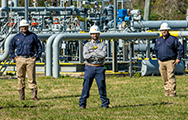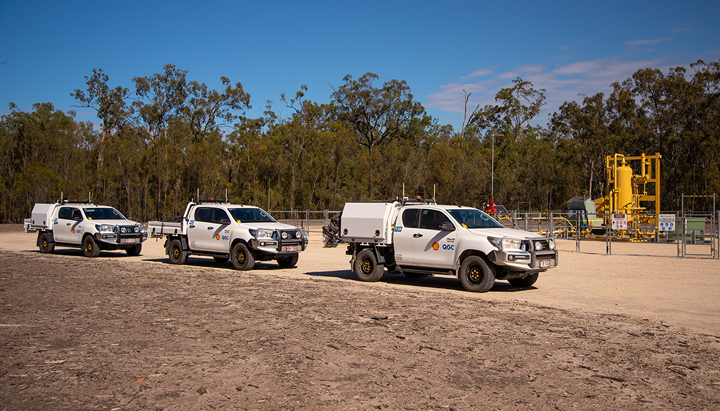Transport safety
Moving large numbers of people, products and equipment by road, rail, sea, and air poses safety risks. We develop best-practice standards within Shell and work with others, such as specialist contractors, industry bodies, non-governmental organisations, and governments, to reduce transport safety risks.
At sea
In our maritime business, we are working with our contractors to improve the quality and consistency of their safety management. This includes developing more effective virtual tools to reduce physical time spent on board carrying out vessel audits, which proved crucial in 2020 during COVID-19 lockdowns.
This work involved creating a virtual programme to verify that safety initiatives implemented for vessels meet Shell’s standards. We worked on this programme with around 80 maritime officials and 450 contractor partners, and carried out more than 400 safety coaching sessions with mariners.
In the air
We operate and charter planes, helicopters, and drones for tasks such as monitoring pipelines, conducting geophysical surveys and transporting passengers and equipment. Despite the COVID-19 disruptions to commercial air travel, Shell staff and our contracted operators continued to keep our air transport services running and to serve our customers across the globe. In 2020, our owned and contracted aircraft flew around 52,000 hours and safely delivered around 554,500 Shell employees and contractors.
Shell’s own aircraft were used to fill gaps in commercial services globally, including evacuating families from high-risk countries and rotating critical workers such as our shipping crews.
On the road
In 2020, Shell employees and contractors drove around 470 million kilometres on business in more than 70 countries. There were no road-transport-related fatalities in activities under the operational control of a Shell company in 2020.
We take steps to continually improve our road safety performance such as implementing best practice, encouraging safe behaviours, and calling for safe vehicle design. We run road safety programmes, including our mandatory defensive driving course that teaches safe techniques and behaviour. In 2020, around 20,000 Shell employees and contractors completed some form of in-vehicle or virtual defensive driving training.
Fatigue is one of the most significant risks when on the road. In 2020, at the Shell-operated QGC facility in Australia we worked with four world-class universities and eight contracting companies to evaluate fatigue detection devices to find the one that performed best in expert testing. The collaboration was the largest of its kind and involved evaluating around 100 devices on long stretches of Australia’s road network. We aim to start using recommended devices in Malaysia in 2021.
In 2020, we also continued to roll out our road transport risk management initiative focused on countries where road transport is a high risk. We took steps to reduce driving time by constructing new supply points in India, Mexico, Pakistan, the Philippines and Russia, and moving more products by pipeline in South Africa. In India, this resulted in a reduction of around 21% of the distances being driven.
In Pakistan, we continued to implement learnings from a tragic roll-over incident that occurred in 2017. Our focus has now moved from technical standards to driver professionalism, including aspects such as fitness to work, training, and coaching on the job. Shell Pakistan Limited is managing fatigue on the road through the creation of enhanced awareness of this topic, reduced duty hours, and better rest facilities.
Visit www.shell.com/transport-safety for more on our approach to transport safety.





